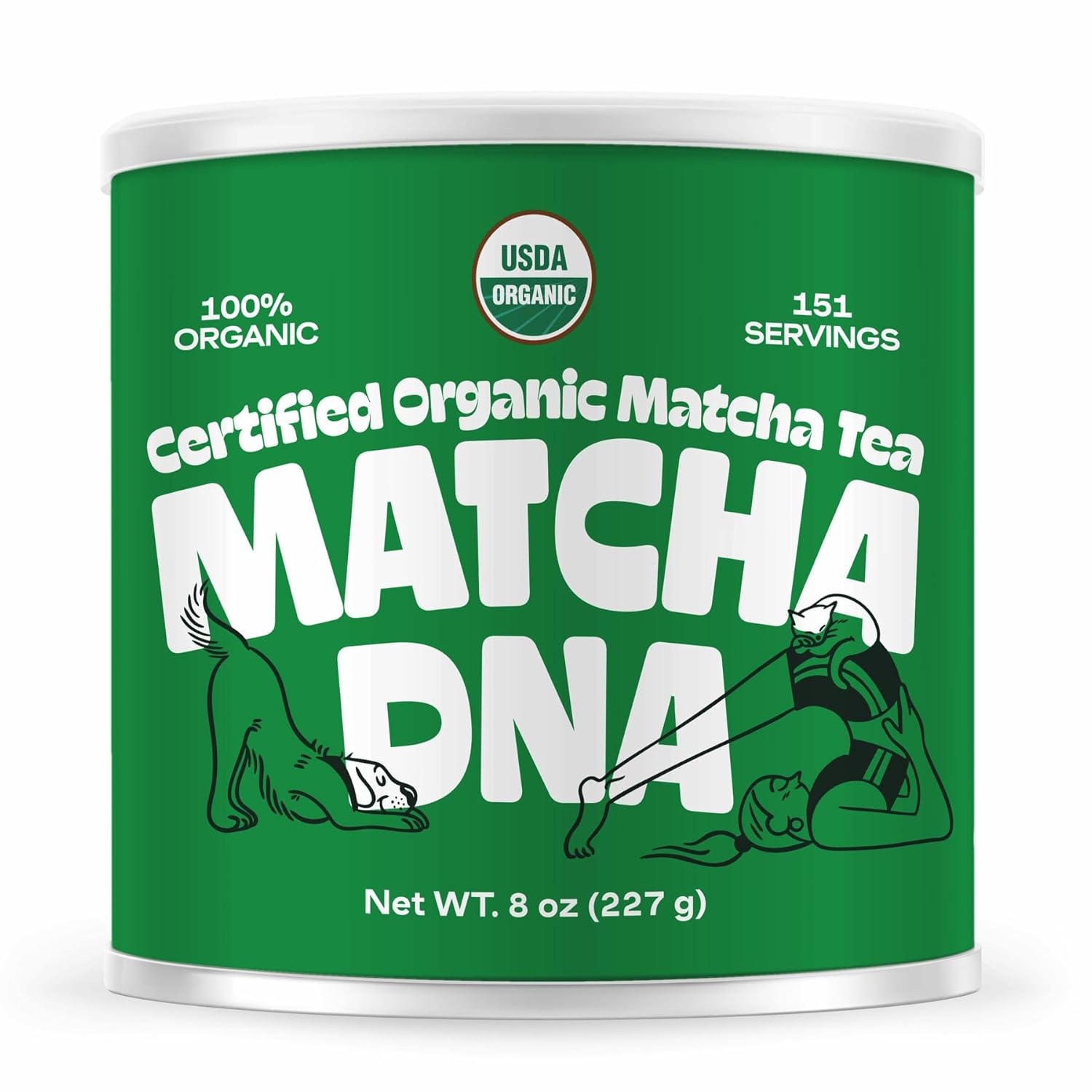Picture this: you need an energy boost, but coffee makes you jittery, and energy drinks are a definite no-go. Enter matcha green tea.
But, will it actually give you that energy boost? And in that case, how much caffeine is in matcha green tea? Is it enough to replace your morning coffee? Or is it just a glorified green smoothie?
It’s actually a question we get quite often, and, spoiler alert, yes, matcha has caffeine. But it’s way cooler than you think. Let me spill the tea on matcha tea caffeine content, and why it might just be your new favorite energy fix.
What even is caffeine, anyway?
Before I get into matcha, let’s break down caffeine real quick.
Caffeine is like your brain’s wake-up call. It’s the OG stimulant found in coffee, tea, energy drinks, and cacao (did you know that?! I recently found out).
-
Stimulates your nervous system.
-
Blocks adenosine (the chemical that makes you sleepy).
-
Boosts dopamine (aka the “I’m unstoppable” chemical).
It actually reaches its peak level in your blood about an hour after consuming it, but you may continue to feel its effects for a few more hours.
Which brings us back to matcha.
So, does matcha have caffeine?
You want the short answer? Yup, it does.
But here’s the longer explanation: matcha is a green tea, but since it’s made by grounding the entire tea leaves, you get more caffeine than a regular cuppa. If you’re interested in the differences between these two, go check out this post for a full breakdown.
Matcha vs. green tea vs. coffee
Three drinks with caffeine, so what’s the difference? Girl, not all caffeine is created equal. Let’s compare:
☕ Coffee has about 80-100 mg caffeine per cup. You get a quick energy spike, but it doesn’t last long, resulting in a crash. Ever felt super awake with a cup of coffee but wanting to drink another one a few hours later? Yup, that’s why.
🍵 Matcha DNA’s matcha has around 22-44 mg caffeine per cup. The caffeine release, though, is smooth and steady, meaning you won’t get any jitters.
🍃 Green tea can have approximately 15-30 mg caffeine per cup. It has less caffeine, and no sustained boost.
The verdict? Matcha has more caffeine than green tea, but less than coffee. It’s the perfect middle ground. You get enough energy to keep yourself productive, but without turning you into an over-caffeinated goblin. Or creating a dependency on caffeine.
Matcha’s secret weapon? L-theanine
Unlike coffee (which hits you with caffeine all at once), matcha’s caffeine teams up with L-theanine, a magical amino acid that:
-
Smooths out the caffeine buzz (bye, anxiety)
-
Boosts focus & creativity (hello, deep work mode)
-
Keeps you energized for hours (no crash, full productivity)
Think of it as coffee’s energy, but zen mode. Sounds pretty good, huh?
More than just caffeine
But matcha green tea is so much more than just that energy boost. It’s why we love it so much! Matcha is also packed with antioxidants, helps boost memory, alertness, and productivity. It can even help strengthen your immune system and reduce cortisol levels. And let’s not forget the versatile queen it is, perfect for lattes, smoothies, and even DIY beauty hacks.
So, if you're tired of coffee crashes, matcha is your new go-to. If you haven’t already done the switch, go grab yourself a pack of Matcha DNA’s organic matcha powder, smooth, delicious, and easy to mix.
And if you don’t know where to start, check out our other blog posts for recipes, beauty hacks, and all things matcha magic. ✨
See you around, bb.






